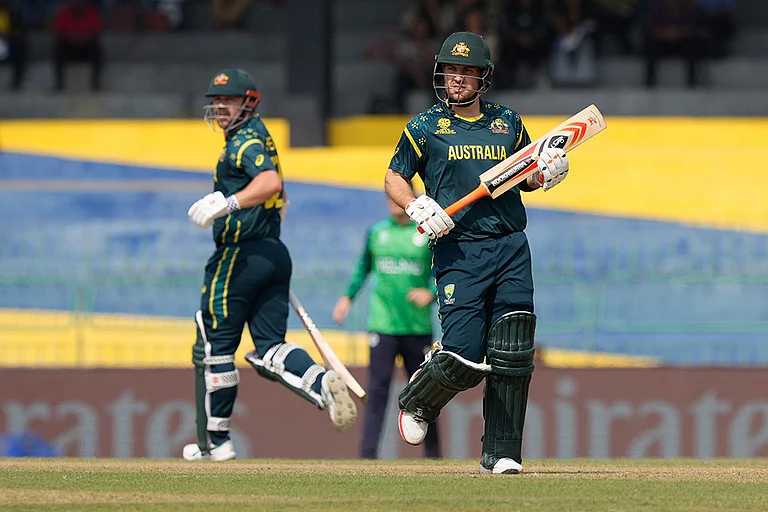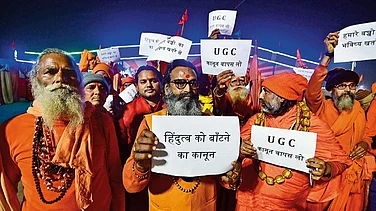Delhi's ongoing battle with severe air pollution entered its seventh consecutive day on Monday, keeping the Air Quality Index (AQI) firmly entrenched in the 'severe plus' category. The situation remains dire, with some of the worst-affected areas in the national capital being RK Puram (AQI 466), ITO (AQI 402), Patparganj (AQI 471), and New Moti Bagh (AQI 488), NDTV reported.
In response to the escalating air quality crisis, the Delhi government has extended the closure of schools up to class 5 until November 10. For schools catering to classes 6-12, they are not mandated to close, but they have the option to conduct online classes if they prefer. The ever-present shroud of toxic smog has raised concerns among medical professionals regarding the increasing prevalence of respiratory and eye ailments, particularly among children and the elderly.
The microscopic PM2.5 particles, notorious for their ability to penetrate deep into the lungs and induce health problems, have been consistently measuring seven to eight times higher than the government's safety limit of 60 micrograms per cubic meter across various locations in Delhi-NCR. This alarming level is a staggering 80 to 100 times greater than the World Health Organization's recommended limit of 5 micrograms per cubic meter.
In response to this dire situation, the government has activated the Graded Response Action Plan (GRAP) at its highest level for Delhi and its surrounding cities, all of which are grappling with 'severe plus' air quality. The GRAP is a set of anti-air pollution measures established by the Central Pollution Control Board (CPCB) and consists of four stages, with Stage IV being the most severe. Stage IV is triggered when the AQI remains above 450, falling into the 'severe plus' category.
The measures under GRAP include restrictions on truck entry into Delhi, except for those transporting essential goods, providing essential services, or using cleaner fuels like LNG, CNG, or electricity. Only electric, CNG, and BS-VI diesel light commercial vehicles registered outside of Delhi are permitted entry, again with exceptions for those carrying essential goods or providing essential services. Additionally, all construction and demolition work, including public projects like roads, bridges, and power lines, has been halted, while public, municipal, and private offices may operate with only half of their staff working from home.
The increased burning of paddy straw in states like Punjab, Haryana, and Uttar Pradesh ahead of the rabi crop season has been identified as a significant contributor to the deteriorating air quality in Delhi. However, Delhi's environment minister, Gopal Rai, emphasizes that stubble burning in Punjab has a relatively lesser impact on the AQI compared to the emissions from Haryana and Uttar Pradesh.
Unfortunately, the India Meteorological Department (IMD) has forecast no rainfall in the near future that could potentially cleanse the air by reducing pollutant levels. In response to the crisis, a high-level meeting is scheduled today to assess the deteriorating AQI and the implementation of Stage 4 under the GRAP.
The Indian Agricultural Research Institute (IARI) based in New Delhi reported a record 4,160 farm fires, the highest for this season, with Punjab alone recording 3,230 incidents of stubble burning in a single day. Rai's contention is that Punjab, under AAP governance, has recorded less stubble burning this year compared to the previous year, attributing the majority of the AQI impact to smoke from Haryana and Uttar Pradesh.
Even the world of sports has not been spared from the air quality crisis, as Bangladeshi and Sri Lankan cricketers struggled to conduct practice sessions. Asthmatic Bangladeshi cricketers remained indoors, while Sri Lankan players donned masks for protection.
Among the health hazards faced by the people of Delhi, coronary artery diseases, heart attacks, brain strokes, and arthritis are looming threats. Dr. Piyush Ranjan, an additional professor in the Department of Medicine at AIIMS, has drawn a direct connection between these health conditions and the prevailing air pollution.


























